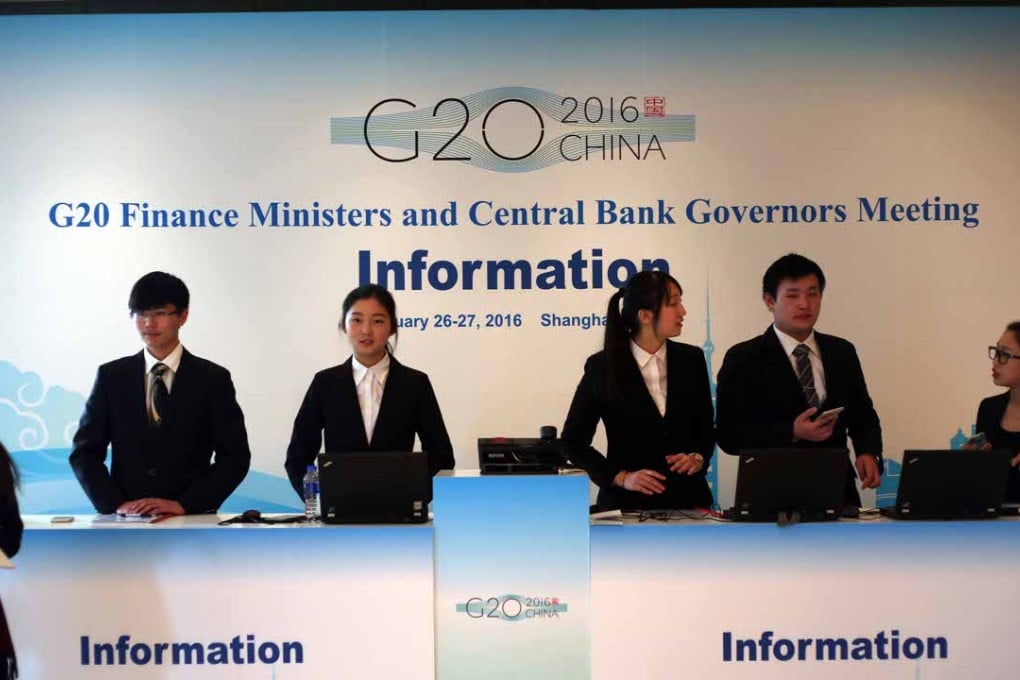Can - and will - China seize its chance to set global agenda at the G20 finance ministers' meeting in Shanghai?

The gathering of G20 finance ministers and central bankers this week will offer a test of Beijing’s ability to set the global agenda.
While its image as a smart manager of the economy and markets has been tainted by its handling of the domestic stock rout and the yuan exchange rate, Beijing’s ambition to make its mark in the group of the world’s top 20 economies is undiminished.
It is unlikely that any development on the scale of the 1985 Plaza Accord – an agreement between France, West Germany, Japan, the United States and Britain, to depreciate the US dollar in relation to the Japanese yen and German Deutsche Mark by intervening in currency markets – will occur at the Shangri-la Hotel in Shanghai.
READ MORE: China presidential top aide’s phone call with US Treasury Secretary sheds light on Xi Jinping’s plans
But China has other ways to make the meeting relevant to the world economy, perhaps by seeking new ways to buoy global growth, from infrastructure investment to green finance, researchers say.
“The G20 is a forum without binding authority, but it actually suits the Chinese way of doing things by building up consensus,” said Zhu Jiejin, an associate professor in international relations at Fudan University in Shanghai.
“As the French hosting officials did in Paris to make a climate deal possible, Chinese hosts can go the extra mile in seeking agreement on issues like growth and financial stability,” Zhu said.
France’s hosting work is widely regarded as key to the success in reaching a climate change deal at the end of last year.
Preferences by the host country, in this case China, for what “should be talked about” could not be neglected, said Zhu, even though short-term turmoil in the financial markets threatened to steal the limelight.